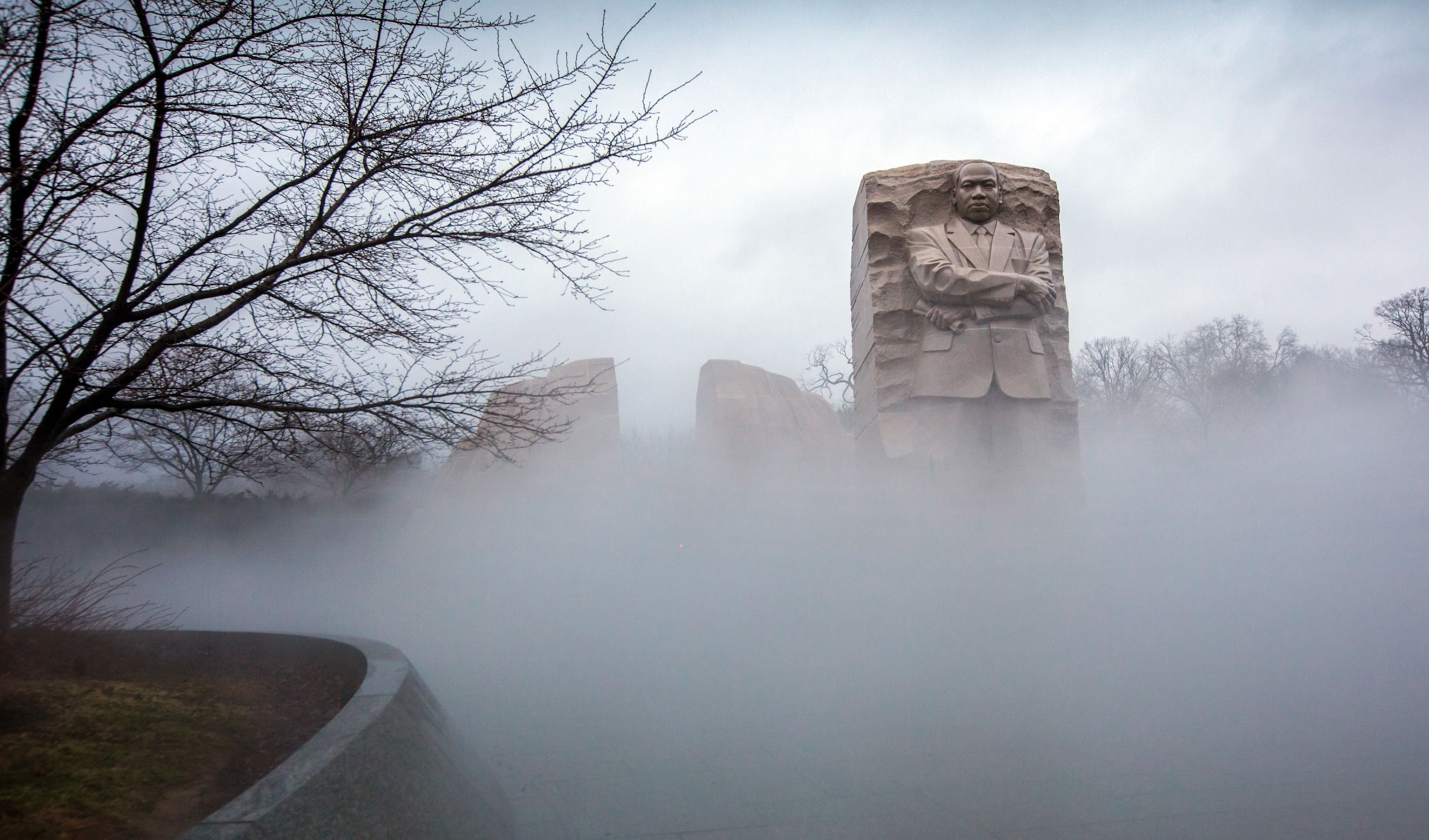
What If Martin Luther King Jr. Were Never Assassinated?
In weighing the question, historians unravel how Americans construct King’s legacy—and how we conceive of civil rights in our own time.
Martin Luther King Jr. was fatally shot in Memphis on April 4, 1968. But what if the attempt were unsuccessful? Or what if there were no attempt at all? What if King had lived on?
It’s fascinating to imagine, but there’s no way to definitively picture such a world; we can’t study history that never happened. Simply posing the question to significant American historians, though, unveils plenty of insight.
A Shared Legacy
King’s contemporaries’ real lives can bridge the gap between reality and fiction—especially the life of Coretta Scott King, his wife and fellow activist.
“The scope of her activism and the breadth of the issues she was working on are an indication of where [Martin Luther King] would be,” suggests Jeanne Theoharis, a Brooklyn College political science professor and author of A More Beautiful and Terrible History: The Uses and Misuses of Civil Rights History.
Just four days after her husband’s assassination, Coretta Scott King led the Memphis sanitation worker’s march in his place. But her work wasn't restrained to merely carrying her late husband’s torch, says Theoharis, pointing to King’s early opposition to the Vietnam War, her campaigns for economic as well as racial justice, her global peace work and denunciation of South African apartheid, and her agitation for gay rights.
King, if he had lived, would very likely have taken up those same banners—perhaps even marching them into the White House, speculates Komozi Woodard, a professor of history, public policy, and Africana studies at Sarah Lawrence College.
“Hopefully, White America would have matured to the point of decriminalizing Dr. King as time went on” just as Nelson Mandela’s image shifted from terrorist to savior in South Africa, Woodard tells National Geographic. “Dr. King may have successfully run for president as Mandela did.”
A Living King
One difference is a little easier to imagine, though it speaks volumes: we might not celebrate Martin Luther King Day in a world where he wasn’t assassinated.
As both Theoharis and Woodard reiterate, King, while loved and admired by many, was vastly unpopular among political leaders and white Americans at the time of his death.
“FBI leadership at that time saw King’s stature as a ‘black messiah’ in criminal terms,” Woodard says, describing how King was “alienated, isolated and eliminated” by the Johnson administration.
But the decades after King’s assassination saw his image flattened into a very different shape.
“What a martyred King allows, is to sand off what makes us uncomfortable, have him be the ‘Dream’ guy,” Theoharis says. “It places him safely in the distant past.”

The real King, who spoke out against police brutality in the early sixties and whose tactics were nonviolent but intentionally disruptive, would challenge the rosy image he’s given today.
Woodard describes how King’s views were becoming more aligned with those of the more radical Malcolm X. “That doesn’t mean that King would have abandoned nonviolent protest,” he says, “but it means that King was increasingly militant in his anti-poverty agenda.”
And as Theoharis points out, there are many ties between civil rights activists of the sixties and current movements like Black Lives Matter—a ladder of legacies Woodard traces from King through Stokely Carmichael, to whose youthful Black Power movement Woodard imagines King would have added “a core of stability.”
If King had lived, his presumed connection to—or involvement with—today’s polarizing racial justice activists would counter, as Theoharis puts it, America’s “fable that we’ve gotten past the race problem.”
“I think we’re very uncomfortable with the idea of King intervening in our times,” she says. “That’s the challenge of a living King.”